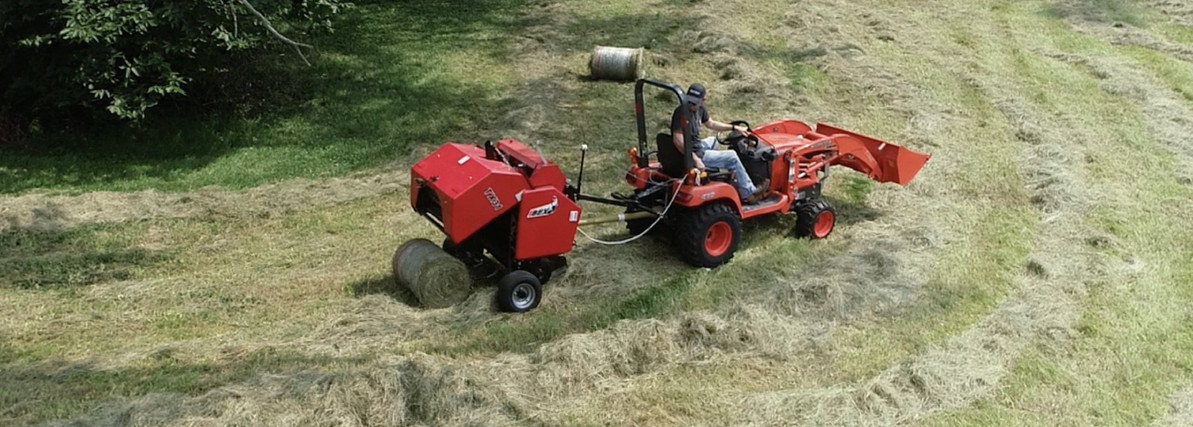Net Wrap Versus Twine—Mini Round Balers
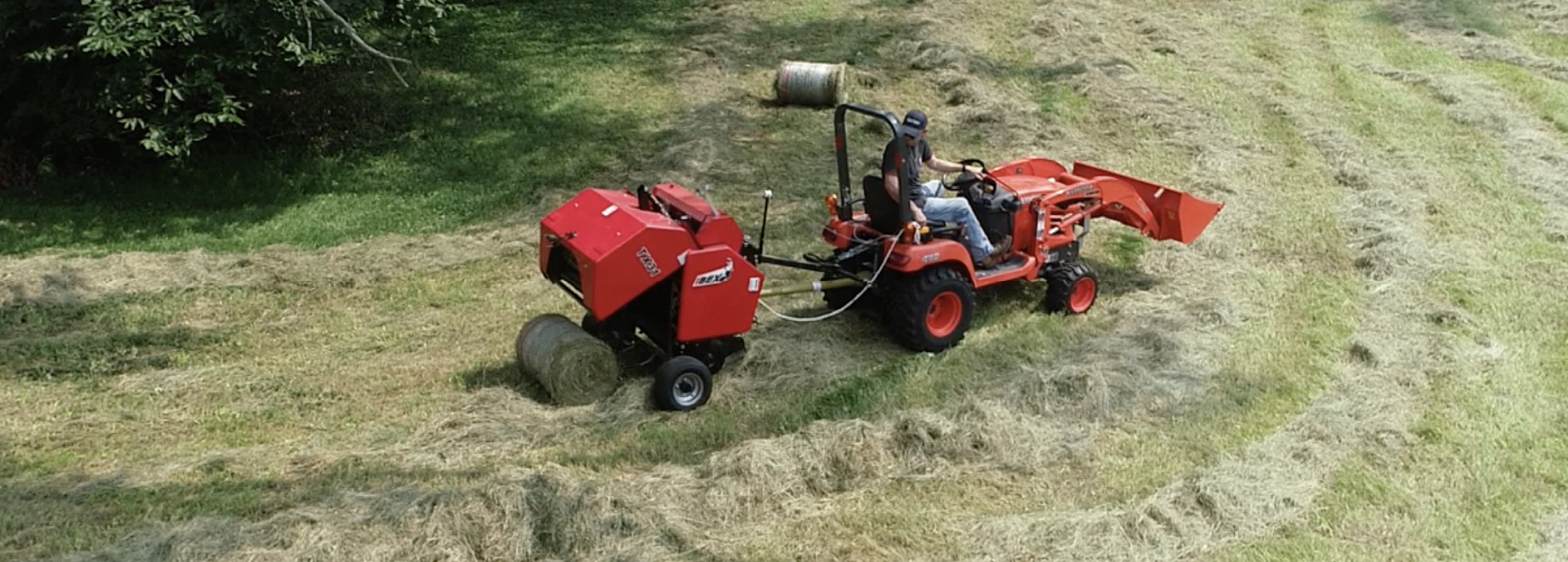
Here at Tractor Tools Direct, we have recently added a line of more affordable net-wrap mini round balers. Because of that, we are fielding questions about which type of baler is better—net wrap or twine. In this blog we will discuss the pros and cons of each so that you can make the best choice for your small-farm operation.
The Mini Round Baler in General
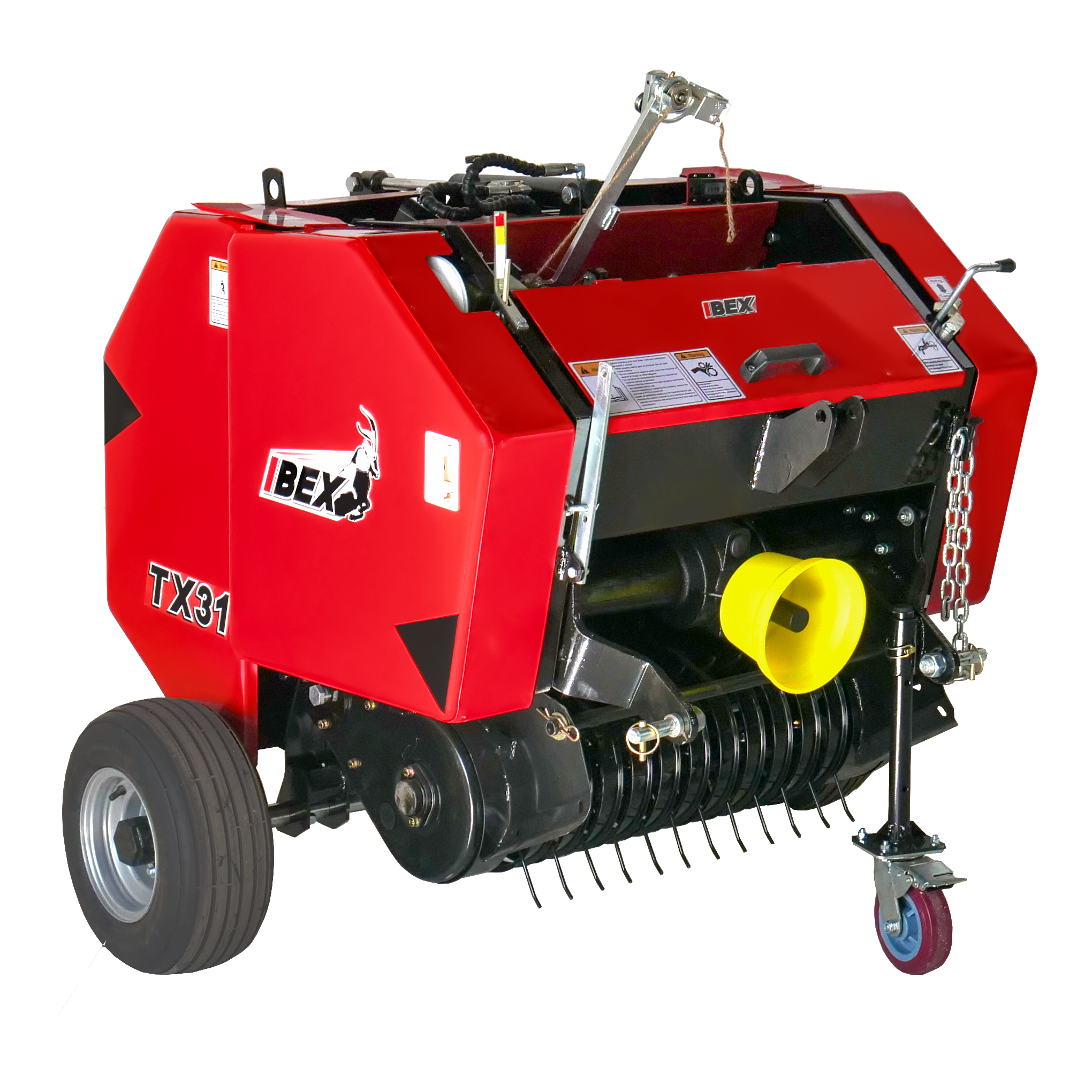
First, it is necessary to keep in mind that this blog will discuss mini round balers. The uses of such balers vary from those of large round balers. Mini round balers can be operated by tractors with as little as 18 HP and have uses beyond the hay field, including pine straw baling. We have even heard of customers using them for baling leaves and orchard clippings and prunings. Here we will concentrate on hay production with a brief mention of pine straw production (in its use for gardening and landscaping).
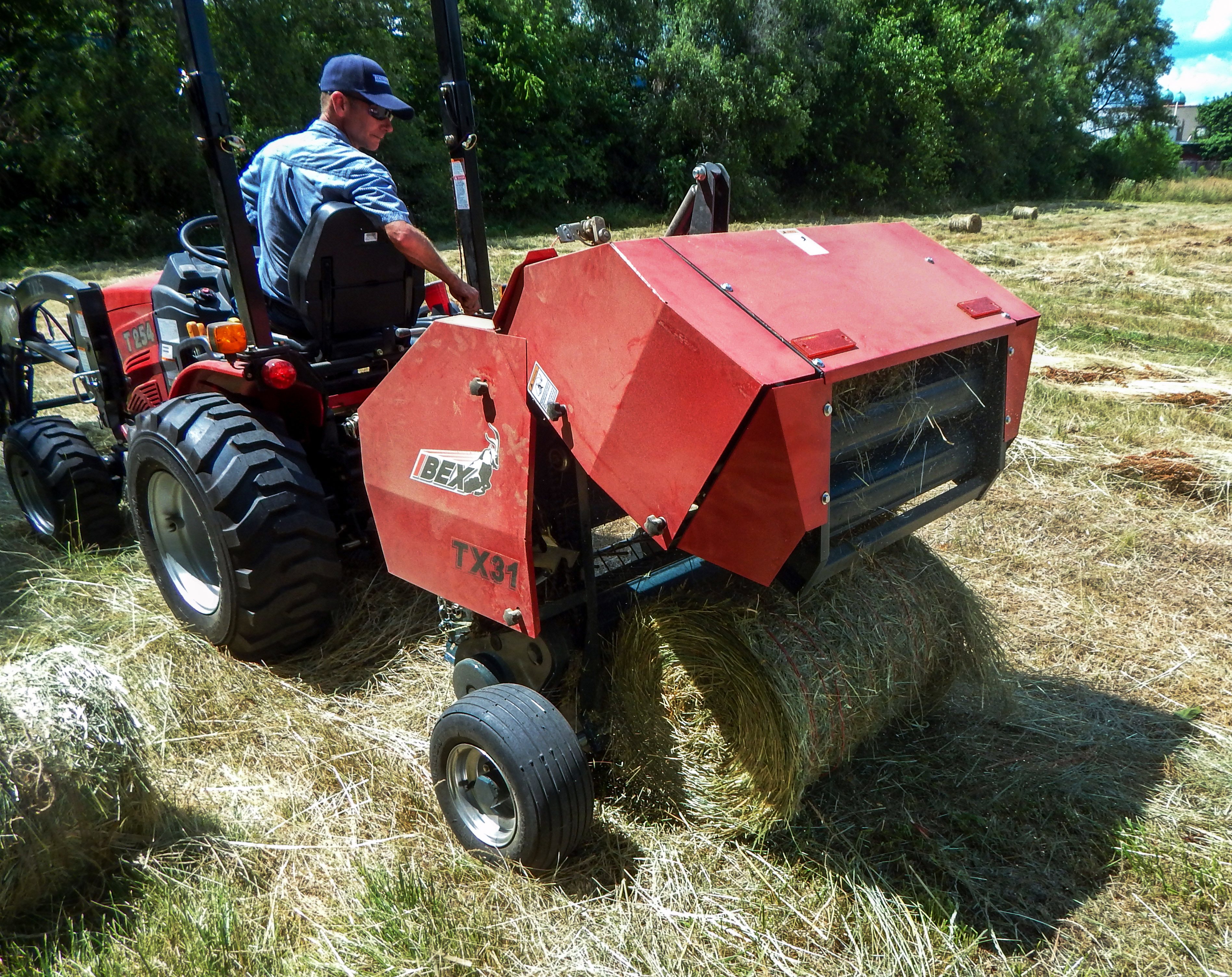
Baling Speed
Net-wrap balers work much faster than twine wrap. This is because 2 to 3 turns of the bale are required to wrap a bale with net wrap versus 8 to 10 turns for twine. For this reason, a net-wrap baler can be advantageous for farmers producing a larger quantity of bales. Speedier baling also saves fuel and labor costs and allows farmers to get the crop up more quickly before the weather turns.
Weatherability
Even without net wrap, round bales are much more weather resistant than square bales, meaning a surprise rain shower or a heavy morning dew won’t ruin your bales in the field before you can get them inside. Adding net wrap gives you even better weather resistance.
Handling Loss
Since net-wrap balers require less spinning in the baling chamber, there is less leaf loss before the bale even hits the ground. Once out of the baler, net-wrap bales lose less material from heavy handling. If your bales are going to be moved a few times, net-wrap would be the better choice. This should be an especially important consideration for pine straw producers whose product is handled from the pine plantation, to the shipper, to the box store, to the customer.
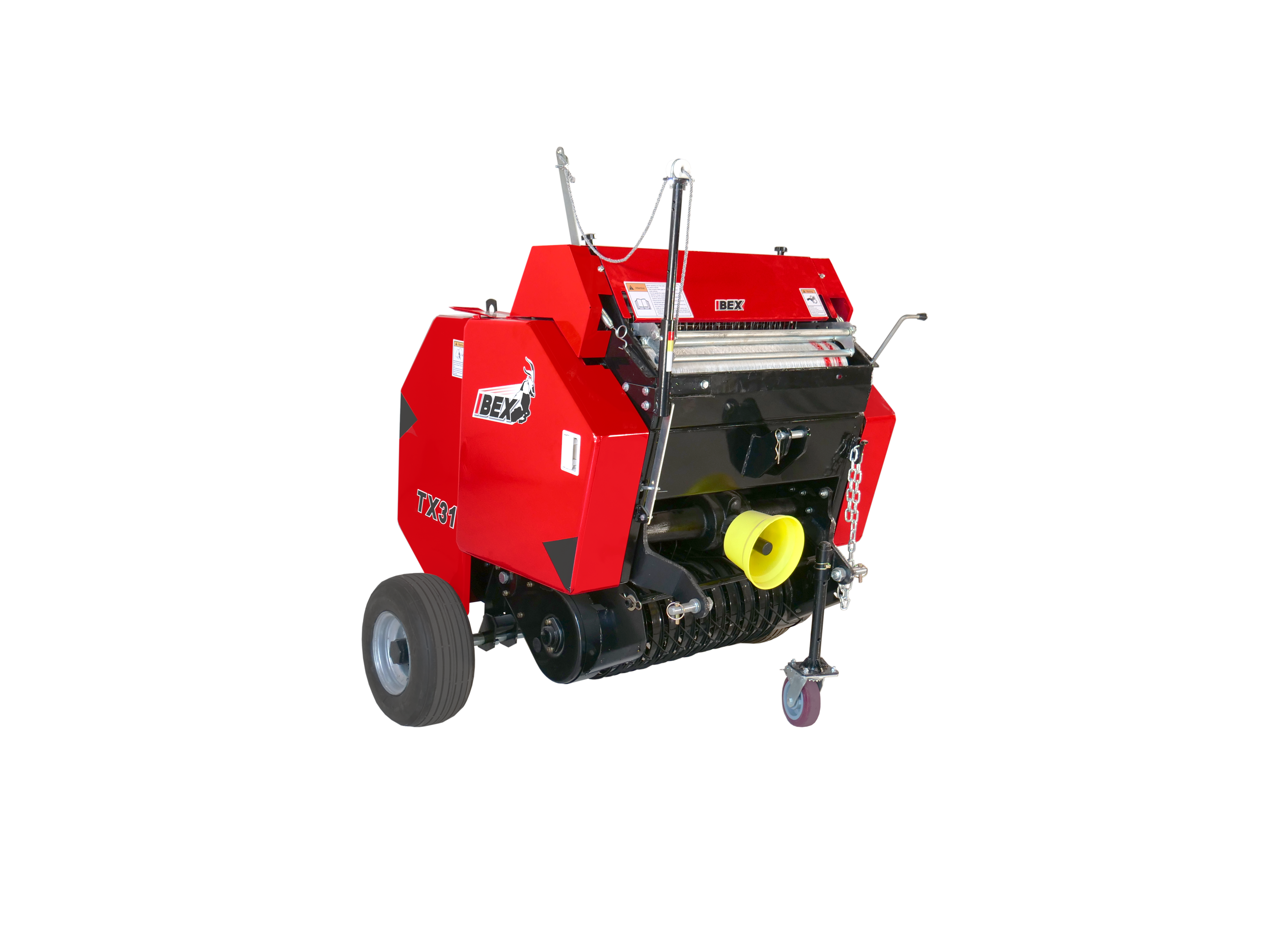
Marketability
Net-wrap bales tend to be more aesthetically pleasing. They keep their shape, stay uniform, and look tidy. Granted, the livestock eating them don’t care, but depending upon the customer purchasing the bales, this could be an issue. This is again important for pine-straw producers selling product to box stores or farmer’s markets.
Cost
The up-front costs of a twine baler are less. The baler itself tends to be less expensive as does the twine. However, the costs related to slower baling speed like fuel and labor, handling loss, and less marketability need to be considered.
Summary
For farmers producing smaller amounts of hay for their own livestock that won’t be excessively handled, a twine baler is probably the way to go. For those who need to consider the marketability of their product, who handle and transport bales more than normal, or who have more bales to produce in a limited time frame, a net-wrap baler is the best choice. For many of the same reasons, the latter is probably the best choice for most pine-straw producers.
If you’d like to learn more about both types of balers, please visit our website here. Our Ibex brand balers are the most affordable on the market. We’d be happy to work with you in choosing one for your small farm or pine plantation.
Ibex TX31 Net Wrap Baler in Action
Recent Posts
-
The Subcompact Economy Hay Package: Your Gateway to Small-Farm Hay Production
For small-acreage farmers who want to step into hay production with confidence, affordability, a …Feb 6th 2026 -
Power Harrows for Spring Soil Prep: The Must-Have Tool for Small Farms
Spring is coming fast — and for growers, livestock managers, and land stewards, that means it’s …Feb 1st 2026 -
The Evolution of the Kubota BX Series: How a Sub-Compact Became a Powerhouse
While we here at Tractor Tools Direct do not sell Kubota BX tractors themselves, we do sell plen …Jan 15th 2026

